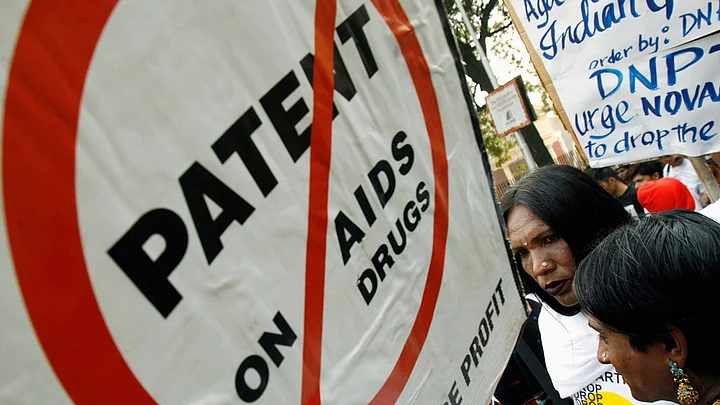IPR’s Adjudication
- As per court orders, Audi and its affiliates have been restrained from using the trademark “T.T” until the next date, which is November 2, 2015
- Though the Patents Act advocates caution in granting and enforcing patents there have been instances of grant of injunctions by Indian Courts
- A defendant restrained by the Court suffers not because “IP is evil”, but because of delayed adjudication of the case
Social media was agog a few days ago when it was reported that the High Court of Delhi had granted an ex parte ad interim injunction in favour of one Mr. Rikhab Chand Jain, founder of TT Textiles, against the German automobile manufacturer Audi AG in a suit instituted by the former for infringement of his registered trademark “TT”. As ex parte ad interim injunctions go, Audi and its affiliates have been restrained from directly or indirectly using the trademark “TT” until the next date in the suit, which is November 2, 2015.
Given that the order was passed on July 21, 2015, the mainstream media has been relatively slow in reporting the order. Once the news of the order broke, predictably questions were raised on social media on the legitimacy of Intellectual Property Rights (IPRs), with some even wondering if the IP system is “broken”.
However, IP practitioners will tell you that such orders are routinely passed in suits for trademark infringement and that the defendant is not without remedy under the law to get the ex parte injunction vacated if it can convince the court that the injunction ought not to have been granted in the first place. Therefore, to conclude that the IP system is “broken” or that “all IP is evil” would amount to hasty and uninformed generalisation.
Increased Awareness
Not unlike other signatories to the Agreement on Trade-Related Aspects of Intellectual Property Rights (unpopularly known as “TRIPS”), India recognises different forms of IPR such as Patents, Copyrights, Trademarks, Industrial Designs, Geographical Indications, Trade Secrets, Semi-conductor Design Layouts and protection of new plant varieties.
In fact, India has had a patent law since 1856 and copyright law since 1847, obviously based on their English counterparts. Therefore, these rights are not exactly “new” although the awareness in India with respect to IPR may be relatively a more recent phenomenon.
Securing an Injunction
What is important to understand is that not only does India recognize and grant different forms of IPR, there are different standards that apply to the grant and enforcement of these rights depending on the nature of the IPR. For instance, it may be relatively easier to secure ex parte ad interim injunctions in the case of trademarks, copyrights and industrial designs since these cases by and large involve visual and/or phonetic comparison of the right owner’s IP and the defendant’s products.
The chances of a securing such orders in the case of patents may not be the same since this form of IP is significantly more complex and therefore, visual comparison of the patentee’s IP and the defendant’s product may not be sufficient to demonstrate infringement in most instances. Importantly, the Patents Act, 1970, which is the law in force as on date, expressly states that a patent right is not to be deemed valid merely because the patent has been granted after examination by the Indian Patent Office.
Not just that, the Act provides multiple opportunities to third parties to oppose a patent application before a patent is granted (“pre-grant opposition”) and to seek invalidation of the patent post its grant (“post-grant oppositions/revocation petitions”). In fact, it was a pre-grant opposition that ultimately resulted in denial of a patent to Novartis over the anti-cancer drug Glivec by the Supreme Court in 2013. Clearly, the framework of the Patents Act advocates caution in granting and enforcing patents. And yet, there have been instances of grant of ex parte injunctions and temporary injunctions by Indian Courts in the recent past in patent disputes.
Delayed Adjudication
Although, as stated earlier, there are mechanisms under the law which allow the defendant or the aggrieved party to seek vacation of such ex parte or temporary injunctions, there are practical difficulties due to delays in adjudication, which are not limited or peculiar to IP disputes. Consequently, a defendant who has been restrained by the Court suffers not because “IP is evil”, but because of delayed adjudication of the case.
Special IP Courts/tribunals have been suggested as a possible solution, but tribunalisation, unless a subject such as patents demands a specific expertise, is not always the solution and cannot become the only solution.
After all, conventional Courts in other mature jurisdictions such as the United States have been able to effectively handle IP disputes, including complex patent disputes. Therefore, the solution perhaps lies in increasing IP awareness and in insisting on expeditious disposal of cases, as opposed to demonising IP.
(J Sai Deepak is an engineer-turned-litigator practising before the High Court of Delhi. He runs the legal blog “The Demanding Mistress” and is @jsaideepak on Twitter.)
(At The Quint, we question everything. Play an active role in shaping our journalism by becoming a member today.)
